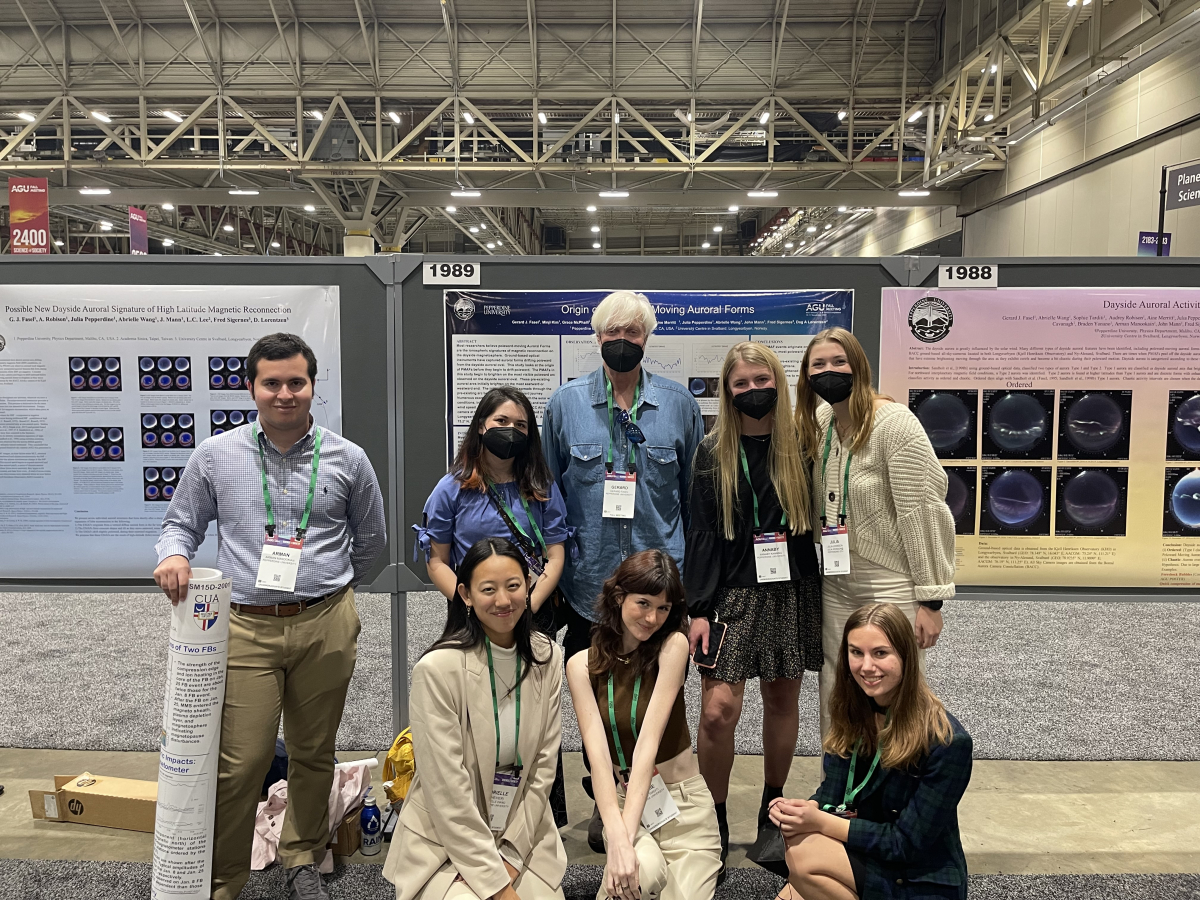Seaver College Researchers Present on Effects of Solar-Terrestrial Interactions
 From December 13 to 17, Seaver College assistant professor of physics Gerard Fasel
and seven Seaver College students––Abrielle Wang, Audrey Robison, Julia Pepperdine,
Annaby Kanning, Julia Johnson, Sophie Tarditi, and Arman Manookian––presented their
research at the American Geophysical Union Fall Meeting in New Orleans, one of the
largest scientific conferences in the world. The seven students presented on five
different projects.
From December 13 to 17, Seaver College assistant professor of physics Gerard Fasel
and seven Seaver College students––Abrielle Wang, Audrey Robison, Julia Pepperdine,
Annaby Kanning, Julia Johnson, Sophie Tarditi, and Arman Manookian––presented their
research at the American Geophysical Union Fall Meeting in New Orleans, one of the
largest scientific conferences in the world. The seven students presented on five
different projects.
“The research I do is astrophysics,” Fasel shares. “All stars have winds, including our sun. When the Sun is active, it can have solar storms, which eject a billion tons of material at a million miles per hour. If that’s directed at the earth, it could hit the earth and have consequences.”
Fasel specifically looks at solar-terrestrial interaction, and he stresses the importance of understanding what effects the sun can have on earth. The research the students presented at the conference seeks to progress understanding of this topic.
“These interactions create very active aurora, the effect of the interaction of the earth’s magnetic field with the solar wind,” Fasel says. “We use spacecraft data from NASA and optical data from the Kjell Henriksen Observatory in Norway to, among other things, see how the foreshock bubbles––the bubbles formed when the solar wind hits the earth––affect us.”
The students’ presentations included “Comparisons of two foreshock bubbles and their different impacts on the magnetosphere: Ionospheric signatures,” “Possible New Dayside Auroral Signature of High Latitude Magnetic Reconnection,” “Origin of Poleward-Moving Auroral Forms,” and “Dayside Auroral Activity.”
Students who worked on the research but were not present at the conference are Aine Merritt, Minji Kim, Grace McPhaill, Benjamin Swonger, Mariam Pavez, Jenna Cavanagh, Emma Lake, Gasia Excel, Braden Yonano, Spenser Rapier, and Dora Csonge.
AGU is an international, nonprofit scientific association whose mission is to promote discovery in earth and space science for the benefit of humanity. AGU aims to advance discovery and solution science that accelerate knowledge and create solutions that are ethical, unbiased, and respectful of communities and their values. AGU meetings foster learning and collaboration, and promote topics that enhance perspectives across earth and space science.
For more information, visit the AGU Conference website.